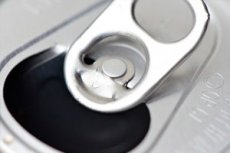What are the dangers of caffeinated sodas?
Last reviewed: 07.06.2024

All iLive content is medically reviewed or fact checked to ensure as much factual accuracy as possible.
We have strict sourcing guidelines and only link to reputable media sites, academic research institutions and, whenever possible, medically peer reviewed studies. Note that the numbers in parentheses ([1], [2], etc.) are clickable links to these studies.
If you feel that any of our content is inaccurate, out-of-date, or otherwise questionable, please select it and press Ctrl + Enter.

Regular consumption of caffeine-containing beverages by preschool and school children leads to an increased risk of further addiction to alcohol and other psychoactive substances in adulthood. This information was recently reported by the National University of Seoul and their colleagues from the United States.
The consumption of soft carbonated beverages by children is not prohibited. However, everyone knows that many such drinks contain caffeine, sweetening agents (e.g., corn syrup), which can have a negative impact on neurocognitive activity and provoke the development of side effects - in particular, changes in the microflora of the body.
For several decades, scientists have conducted various studies in the course of which they tried to find a correlation between systematic ingestion of a certain amount of caffeine in children and further formation of addiction to psychoactive substances. Scientific work concerned mainly teenage children, who most often consume caffeine-containing carbonated drinks, popularly called "energy drinks". In their new study, the experts set another task - to track whether frequent consumption of such drinks by children of preschool and school age group can increase the risk of subsequent "friendship" with alcohol.
The possible reciprocal relationship between regular use of caffeinated energy drinks and the occurrence of neurobehavioral changes due to the ingestion of psychoactive agents in children was thoroughly investigated. Systematic use of energy drinks was found to be associated with relatively more vivid measures of emotionality and poorer measures of memory and concentration. In addition, if caffeinated sodas were consumed by pre-adolescent children (under 10 years of age), this showed a higher likelihood of early alcohol use.
According to the authors of the study, the results of the project indicate that the systematic use of caffeine-containing sodas by children is the basis for the formation of addiction to psychoactive substances in adulthood. This may be due at least to the fact that large amounts of sweeteners and caffeine trigger toxic processes in the brain, which contributes to the development of hypersensitivity to the effects of relatively more complex psychoactive agents - for example, alcoholic beverages.
For reference: "energy drinks" are drinks that contain stimulants, most often caffeine. These products are actively advertised as a means of improving mental and physical activity.
The results of the study are detailed on of Tailor&Francis Online.
